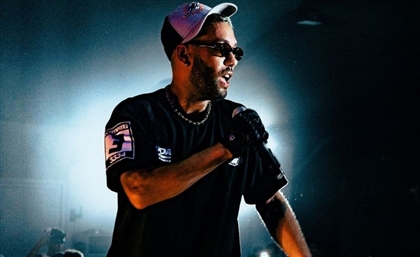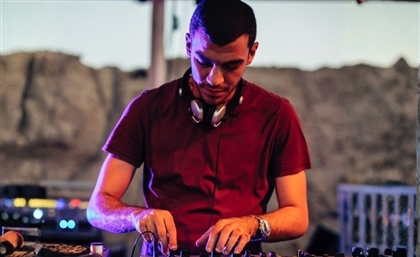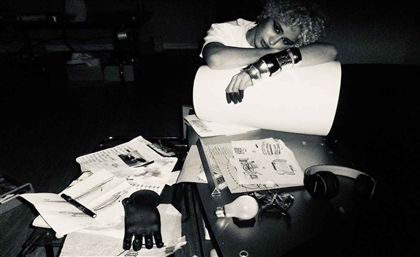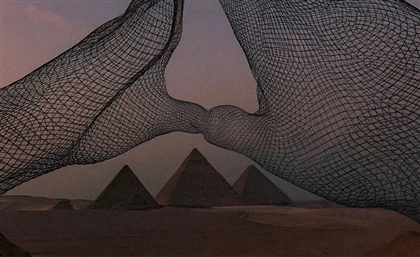The Libyan Reggae Band That Ghosted the Internet
No online tracks, no videos, no press, until now. White Bird’s first-ever interview, straight from Libya’s 80s underground music scene.
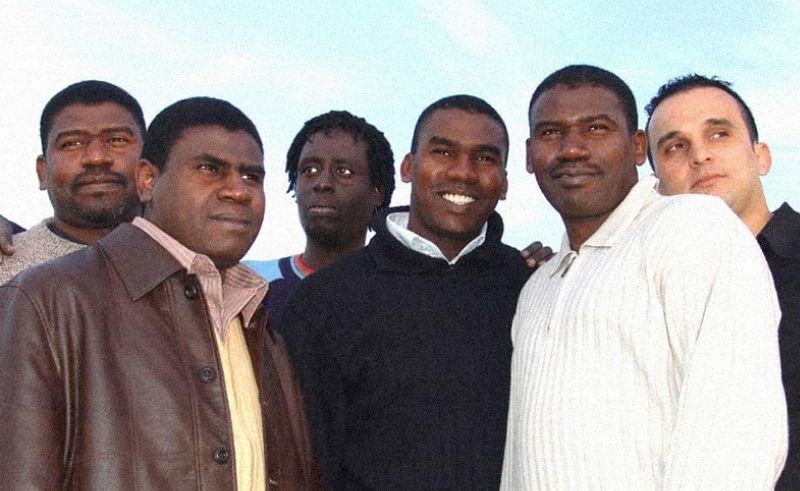
Words & Interview by: Engy Hashem
Research & Story discovery: Youssef Yasser
It’s not every day that you get the chance to speak with a band with such a unique history, and deep roots that have stayed under the radar for so long. It feels like your dad’s old Corolla gifting you a mixtape from the 80s, somehow untouched, somehow still cooler than anything on Spotify. White Bird, the Libyan reggae pioneers, have been a vital force in their homeland for decades, even though their music has only been shared with a lucky few in Libya. After a long journey of trials, triumphs, and self-discovery, they’re now finally ready to introduce their music to the world.
The birth of White Bird feels as much about family as it is about music. Founded in 1984, the band’s story is rooted in deep friendship and shared vision. “It was the bond we had as friends that led to the formation of the band,” they told me with a sense of nostalgia. “We were brothers first, and the music came later.” Their collective passion for creating something bigger than themselves fueled the early days of White Bird.
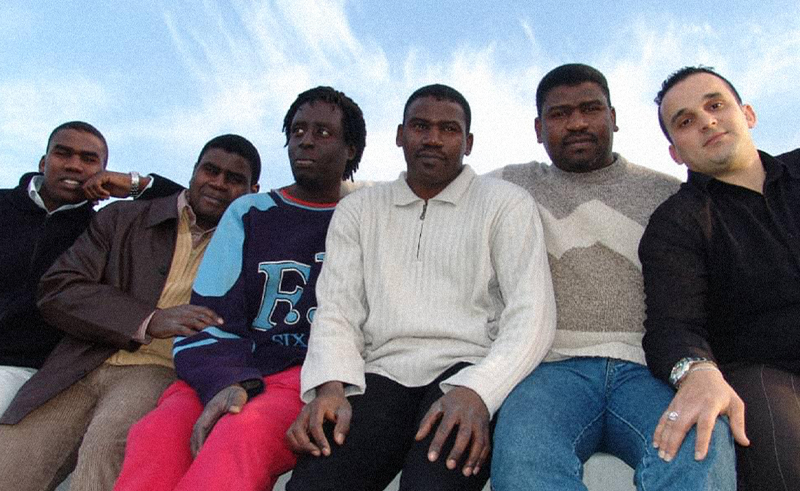 It wasn’t until 1990 that they officially began their musical journey, after years of working and growing together. "In 1993, we released our first album, which was our true beginning," they explained. And the name White Bird? It’s not just a name; it’s a symbol of everything they stand for. “The white bird represents peace,” they said, “It’s the dove, the olive branch, the message of spreading hope and love.” That sentiment runs through everything they do, and it’s clear their music is their way of passing on that message.
It wasn’t until 1990 that they officially began their musical journey, after years of working and growing together. "In 1993, we released our first album, which was our true beginning," they explained. And the name White Bird? It’s not just a name; it’s a symbol of everything they stand for. “The white bird represents peace,” they said, “It’s the dove, the olive branch, the message of spreading hope and love.” That sentiment runs through everything they do, and it’s clear their music is their way of passing on that message.
For White Bird, reggae isn’t just a genre; it’s a way of life. “Reggae spoke to us in a way no other music could,” they shared. "It expressed everything we wanted to say about freedom, justice, and peace." The reggae beat resonated with them, not only because of the rhythm but also because of its deep connection to their African roots. “Reggae came from the struggle for freedom, and that’s something we understand,” they said. “Libya’s struggles are reflected in reggae’s fight for justice and peace.”
As we spoke more, it was clear that White Bird’s sound has never been confined to one style. “We’ve always experimented with different genres,” they explained, “but reggae is the foundation.” Even though they’ve drawn inspiration from many musical traditions — both local and international — reggae remains at the core of what they do. Their openness to creativity and diversity is part of what keeps their music fresh and relevant.
They also spoke about their collaborations, both inside Libya and internationally, which have enriched their journey. I was particularly moved by their collaboration with Yasudo from Burkina Faso, which brought together two very different African cultures through music. "It was a magical experience,” they said. “It wasn’t just about making music — it was about building bridges.”
But it was their work with the late Ibrahim Al-Rock, one of Libya’s most influential musicians, that really stood out. "He had such a big impact on us," they said, a sense of reverence in their voices. “Ibrahim Al-Rock was one of the people who helped shape our identity as artists. He was one of the first musicians who saw what we were trying to do and believed in us." Working with him was a pivotal moment for White Bird, and it’s clear that the collaboration left an indelible mark on their sound and spirit.
Creating a song, according to White Bird, is spontaneous — a mix of inspiration, emotion, and timing. “We don’t have a set process,” they said. “Sometimes, the lyrics come first, sometimes the rhythm. It depends on the moment.” I could hear the creativity in their voices as they described how a song might begin with just a hum or a beat, gradually growing into a full piece of music. It was a reminder that music, at its core, is organic, unpredictable, and full of life.
As they talked about the instruments that mean the most to them, their passion for music was evident. “We can’t pick just one,” they laughed. “Each instrument adds something special.” To them, every instrument plays a crucial role in creating a song that feels whole. Whether it's the rhythm section that keeps things grounded, the strings that bring emotion, or the wind instruments that add layers of depth, everything works together to tell a story.
I was so moved as the band reminisced about their early recordings on cassette tapes, which became an integral part of Libyan culture. "We used to hear our music in taxis, in buses," they said. “It was everywhere. People connected with it in ways we didn’t even imagine.” Those tapes were an important part of their legacy, and as they’ve planned to digitize their old work, they’ve made sure that their music continues to live on. “We’re excited to share our old recordings with the world,” they told me, "and we’re working on getting them onto digital platforms like Spotify and iTunes." It’s clear that this is just the beginning for them.
So why has their music remained underground for so long? According to the band, it was largely due to technical and logistical hurdles. "There were a lot of challenges," they explained, "but we’re finally in the process of uploading everything to digital platforms." I could sense their excitement as they looked ahead to this new chapter. “We want our music to reach as many people as possible. It’s time for the world to hear what we have to say.”
One of the most pivotal moments in White Bird’s history was their appearance on Masrah Al-Jamahir — a moment they described as a “turning point.” "That was when everything changed for us," they said, "It wasn’t just a performance — it was a declaration of who we are." It was on that stage that they truly affirmed their message of peace and love through reggae music. That experience set the tone for the years that followed, and their confidence grew as they realized the power of their music to connect people.
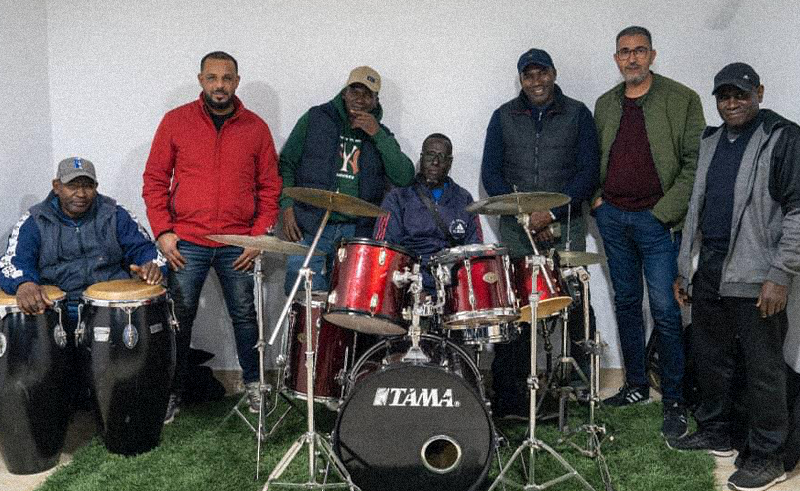 When I asked about the current Libyan music scene, the band didn’t mince words. “It’s struggling,” they said. “There’s no real support, no venues, no platforms for artists.” Yet, despite the obstacles, they remain committed to supporting young Libyan artists. "We stay in touch with them, offering guidance and sharing experiences," they said. "There’s so much talent here, but they need help getting their voices heard." It’s clear that White Bird sees their role not just as musicians, but as mentors to the next generation of Libyan artists.
When I asked about the current Libyan music scene, the band didn’t mince words. “It’s struggling,” they said. “There’s no real support, no venues, no platforms for artists.” Yet, despite the obstacles, they remain committed to supporting young Libyan artists. "We stay in touch with them, offering guidance and sharing experiences," they said. "There’s so much talent here, but they need help getting their voices heard." It’s clear that White Bird sees their role not just as musicians, but as mentors to the next generation of Libyan artists.
Looking toward the future, the band is full of hope and excitement. "We’re recording new material," they shared with a smile. "We’re also planning live shows. We miss the stage." Live performances are where their energy truly shines, and it’s evident they’re eager to connect with their fans on a deeper level.
Finally, I asked them what they’d like the new generation to know about White Bird. "We want them to understand that White Bird is more than just music," they said. "It’s about brotherhood, friendship, and love. Our foundation is built on those values, and that’s what has kept us together all these years."
Getting to speak with White Bird was an unforgettable experience. As I listened to their story, I couldn’t help but feel a sense of awe. This is a band that has remained true to themselves, their values, and their message for decades. Their music has touched the hearts of many, even if it’s only been heard by a select few. But now, as they prepare to share their songs with the world, the rest of us will finally have the chance to hear what we’ve been missing. White Bird’s time has come.
- Previous Article Michael Bublé to Perform in Egypt’s New Capital
- Next Article Egyptian Producer Chiati to Make Ibiza Debut at Chinois June 7th








